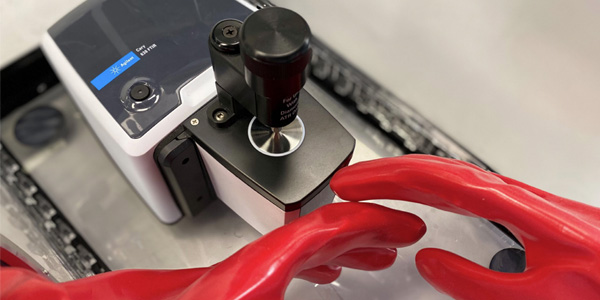
With the rapid move towards electrification, lithium-ion battery (LIB) production is expanding to keep up with global demands. Strict quality control of the materials used in these batteries is paramount for battery safety and performance.
The Agilent Cary 630 FTIR spectrometer has been demonstrated to be a valuable tool for the quality control of salts, solvents, and separators used in LIBs. Some of these materials are known to decompose over time if not handled or stored properly. One of these materials is LiPF6, a lithium salt used in LIB electrolytes that is highly moisture sensitive.
In a recent application note, the Agilent Cary 630 FTIR spectrometer and Agilent MicroLab Software were used to analyze the quality of LiPF6. With the Cary 630 FTIR instrument, it was possible to assess the degradation status of LiPF6 samples exposed to different storage or usage conditions using a simple and efficient quality testing workflow.
Automatic color-coding of the results in the MicroLab software turns the Cary 630 FTIR system into an easy-to-use, turnkey solution that enables quick decision-making in both manufacturing QC settings and research and development laboratories.
